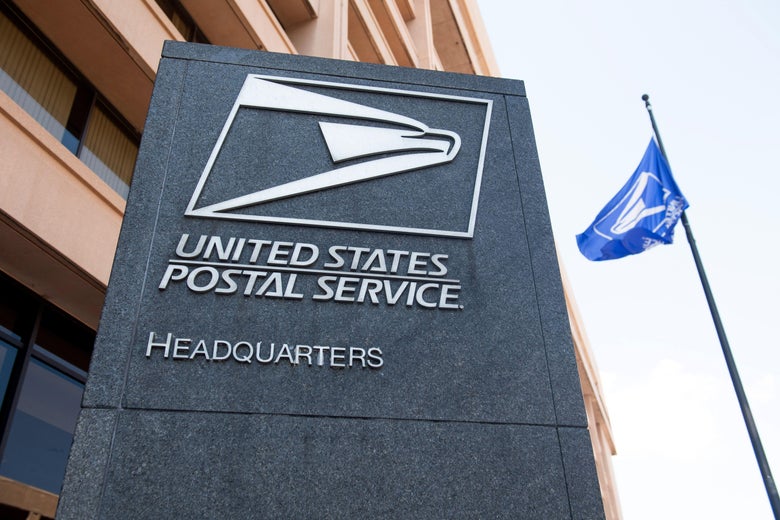
We're finally learning more about what, exactly, has gone amiss at the U.S. Postal Service, because Congress has begun to pry loose some answers. On Thursday, lawmakers heard new testimony that shined some light on the appointment this May of Postmaster General Louis DeJoy, who has been accused of inappropriately slowing down the agency's delivery in the crucial run-up to the presidential election. The process behind that appointment now looks much more dubious.
David Williams, a former member of the Postal Service Board of Governors, which oversees USPS and selects the postmaster general, told the Congressional Progressive Caucus during a hearing that he resigned in April partly because of how DeJoy's hiring was handled. "He didn't strike me as a serious candidate," Williams said of DeJoy, a former logistics executive. According to Williams, the board selected the executive search consultancy Russell Reynolds to produce a list of candidates for the position. Late in the process, however, board member John Barger suggested moving forward with DeJoy after having lunch with him. Barger and DeJoy are both Republican donors. According to Williams, it appeared that DeJoy's name did not come from Russell Reynolds.
The Board of Governors interviewed DeJoy twice. According to Williams, DeJoy spent the entire time during the first interview asking the board questions because he apparently was unsure whether he wanted the job. "Actually, one of the governors joked with him at the end and said that if we don't ask him one question, it really would not qualify as an interview," Williams recalled. The second interview went "particularly badly." Williams said, "Governor Barger actually helped [DeJoy] finish a number of sentences where he got stuck and in addition to that [Barger] explained to the board what Mr. DeJoy meant during the presentation."
Williams said he expressed concerns about the candidate's fitness for the job after each interview and eventually resigned when he realized that DeJoy was going to be appointed and that USPS was becoming politicized. Even the routine background check seems to have been slapdash. "We did discuss conducting a background investigation of him. None was conducted as of the time I left, and I believe that was the night before his selection or two nights before his selection," Williams said, adding that the inspector general looked through DeJoy's files and found some potential issues, such as investments in USPS's competitors. While Williams said that these concerns did not necessarily disqualify DeJoy, they merited further examination, which did not occur. "That's the normal process. To my knowledge it was not conducted." (DeJoy sold many of his problematic assets, though still has stock options in Amazon and at least $30 million of shares in his former company XPO Logistics, a USPS contractor.)
Democrats have been zeroing in on DeJoy's hiring for months now. Sen. Chuck Schumer sent an inquiry to USPS in June asking for more information about the selection process, including Russell Reynolds' briefings from the search. USPS declined to provide these materials a month later, citing confidentiality. Schumer has also accused Treasury Secretary Steven Mnuchin of intervening in the selection process and failing to disclose his own contacts with the board. While Mnuchin has denied his involvement, Williams told lawmakers that the secretary required appointees to the board to "come to his office to kiss the ring and receive his blessing before confirmation." USPS is an independent agency, but Mnuchin reportedly sought to leverage emergency coronavirus loans to influence its operations.
The irregularities in DeJoy's hiring are yet another example of the Trump administration assigning controversial and often unqualified donors to important positions. (DeJoy is notably the first postmaster general in almost two decades who is not a career postal employee.) Now that DeJoy has decreased USPS's delivery capacities by mandating changes to overtime and other agency procedures-and Trump has explicitly floated the idea of withholding funding from the agency to discourage mail-in voting during the pandemic-there is renewed interest in how exactly the postmaster general was able to assume this influential perch at such a critical moment. While DeJoy has said he'll hold off on imposing any more cutbacks on USPS, he hasn't committed to reverting any of his recent changes. He's set to testify on Friday and again on Monday before Congress, where he'll have a chance to answer the many, many questions his short tenure has raised thus far.